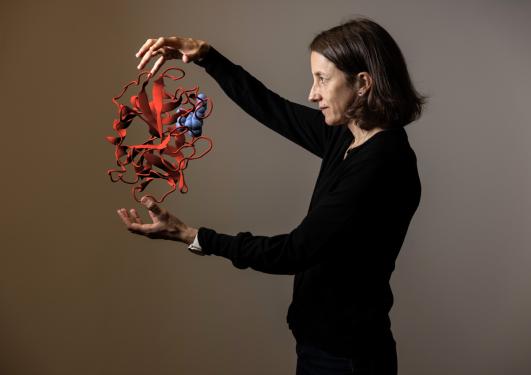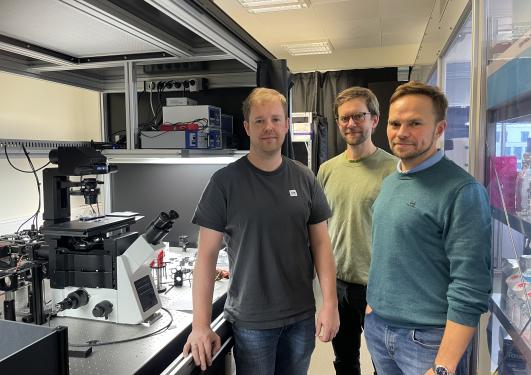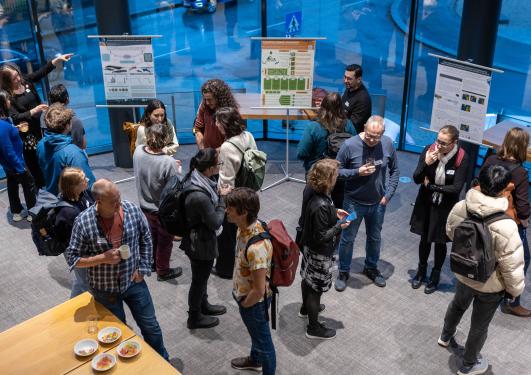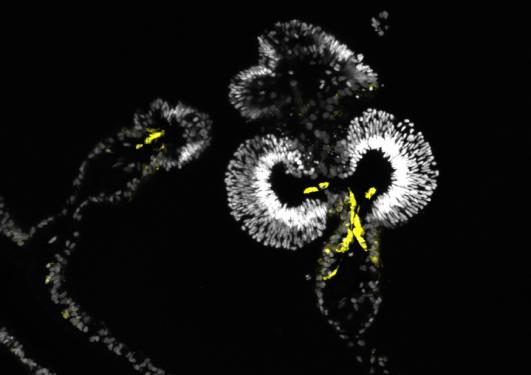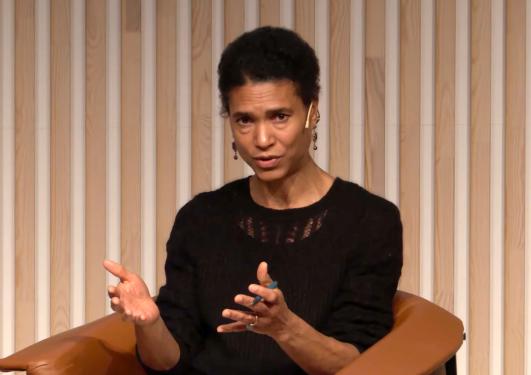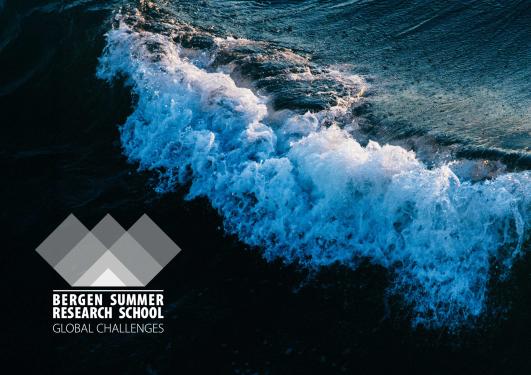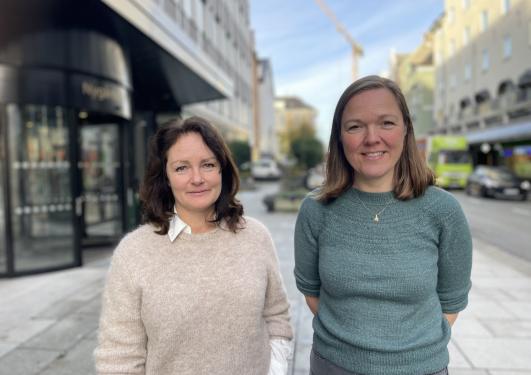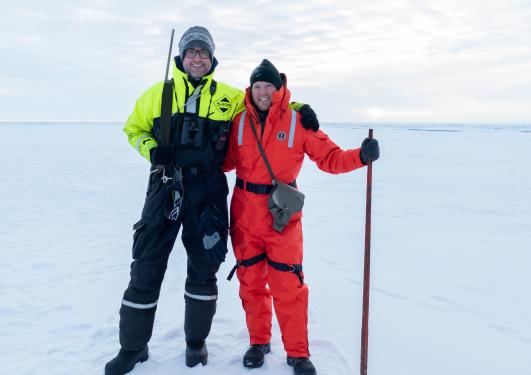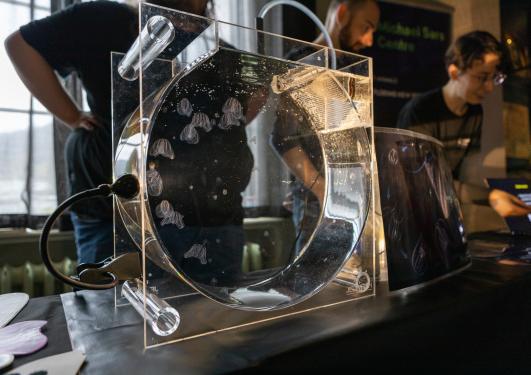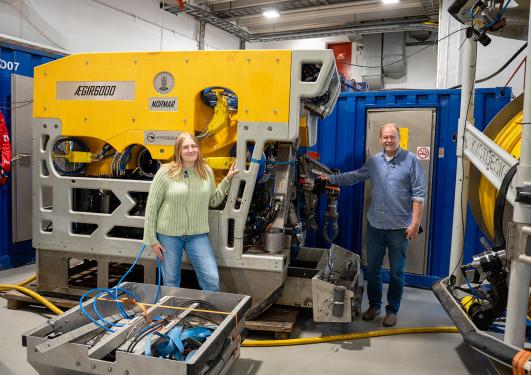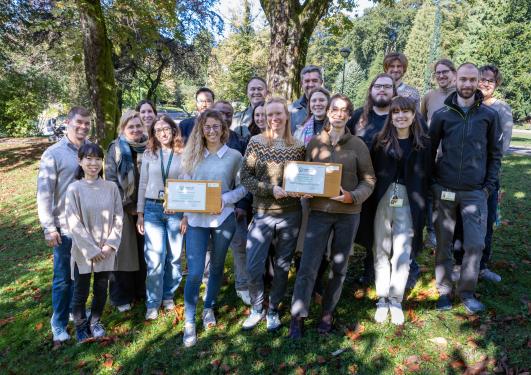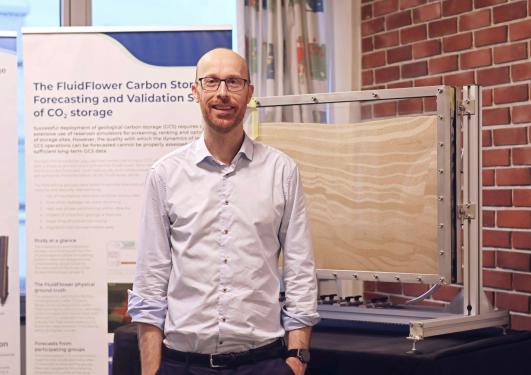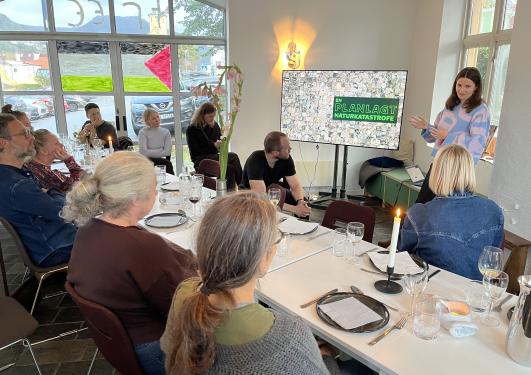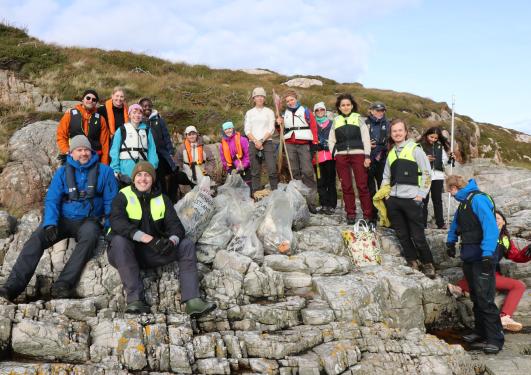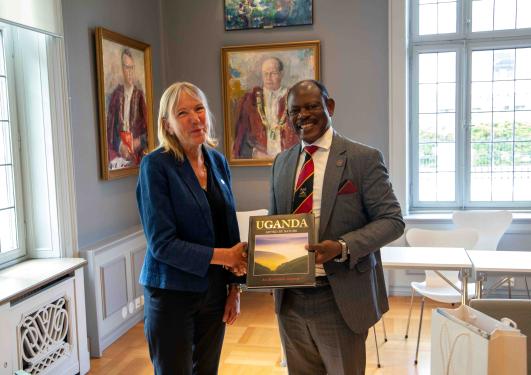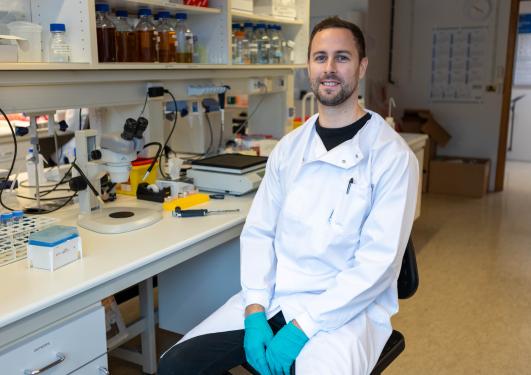News archive for Faculty of Science and Technology
Lipids are best known as the body’s energy reserves, but inside our cells they play a far more complex role.
Imagine a blood test that works like a car’s dashboard, warning you before cancer develops. Researchers in Bergen are using quantum physics and diamonds to make that possible.
From deep-sea research to biomedical advances, the event created valuable connections across the local biological sciences community.
New work from the Steinmetz group at the Michael Sars Centre unveils the secrets behind the starlet sea anemone's extraordinary ability to adjust its body size according to food availability.
Africa–Europe research collaborations must move beyond narrow notions of “equitable partnerships” and towards a research system in which African institutions shape agendas, methods and benefits on equal terms.
The data speaks clearly – our planet faces serious challenges, and the ocean is at the heart of them. Next summer we consider both the opportunities and controversies that come with ocean use. Apply by 1 February 2026.
Sea lice and bacterial diseases are among the biggest challenges in Norwegian aquaculture. Now, two researchers at the University of Bergen have received funding from the Research Council of Norway to develop new knowledge that can improve fish health and strengthen sustainability in the industry.
A few years ago, scientists from the University of Bergen, for the first time in history, managed to collect samples from one of the most remote and extreme seafloor environments deep under the Arctic ice. Now, their first findings reveal extreme hot springs, fragile metal-rich chimney structures, and enormous hydrogen release that could be crucial for the search for life in our Solar System.
As the University Museum celebrates its 200 years jubilee, researchers reflected on breakthroughs in biological sciences made at UiB and how they relate to today’s research.
Now the University of Bergen wants to uncover the secrets of the dark ocean, by establishing a national centre for deep-sea innovation.
Efforts to make the Christiaen and Burkhardt laboratories more sustainable were rewarded with the highest-level certification from international environmental organization My Green Lab. The initiative received support from the UiB Climate Fund.
We are pleased to share that Professor Martin Fernø will join the UNESCO Chair in Green Transition for Carbon Neutrality and Climate Change.
As part of the transdisciplinary collaboration between science, arts, and local communities within the ACTIONABLE research project, the first NIMBLE WEAVERS Kitchen Dinner took place on 21st September 2025, at Hordaland Kunstsenter.
On September 25th, the University of Bergen (UiB) organized a coastal cleanup for students and staff. As last year, the destination was Lisle Lyngøy, often referred to as “Plastic Island” off the coast of Hellesøy. The day was filled with strong impressions — and some good news for the island’s ecosystem.
The two new projects will strengthen a global network for sustainable energy storage and Norwegian-Ugandan cooperation on global health. The partnerships will provide new initiatives and opportunities for international collaboration for students and staff at UiB, as well as for the partners.
A new report has just been launched highlighting how to accelerate the Kunming-Montreal Global Biodiversity Framework through a network of sites working for sustainability and nature conservation.
Guillaume Poncelet, postdoctoral researcher in the Christiaen group, will receive funding from the UiB Idé innovation program to develop a novel product inspired by marine life.
PhD-candidate Nina Hećej wants to know more about where, when, how and why landslides in Norway occur. With the consequences of climate change, more knowledge on future landslides can potentially save both infrastructure and lives.
Pages
- January 2026 (1)
- December 2025 (5)
- November 2025 (1)
- October 2025 (6)
- September 2025 (6)
- August 2025 (1)
- July 2025 (3)
- June 2025 (7)
- May 2025 (7)
- April 2025 (6)
- March 2025 (10)
- February 2025 (14)
- January 2025 (4)
- December 2024 (12)
- November 2024 (8)
- October 2024 (11)
- September 2024 (11)
- August 2024 (8)
- July 2024 (10)
- June 2024 (7)
- May 2024 (14)
- April 2024 (16)
- March 2024 (7)
- February 2024 (15)
- January 2024 (6)
- December 2023 (7)
- November 2023 (19)
- October 2023 (11)
- September 2023 (13)
- August 2023 (8)
- July 2023 (3)
- June 2023 (11)
- May 2023 (7)
- April 2023 (13)
- March 2023 (10)
- February 2023 (12)
- January 2023 (19)
- December 2022 (5)
- November 2022 (25)
- October 2022 (8)
- September 2022 (8)
- August 2022 (5)
- July 2022 (5)
- June 2022 (9)
- May 2022 (6)
- April 2022 (6)
- March 2022 (7)
- February 2022 (9)
- January 2022 (6)
- December 2021 (6)
- November 2021 (3)
- October 2021 (10)
- September 2021 (5)
- August 2021 (6)
- July 2021 (3)
- June 2021 (21)
- May 2021 (11)
- April 2021 (3)
- March 2021 (6)
- February 2021 (4)
- January 2021 (3)
- December 2020 (5)
- November 2020 (2)
- October 2020 (3)
- September 2020 (4)
- August 2020 (3)
- July 2020 (2)
- June 2020 (3)
- May 2020 (3)
- April 2020 (5)
- March 2020 (1)
- February 2020 (2)
- January 2020 (3)
- December 2019 (5)
- November 2019 (4)
- October 2019 (9)
- September 2019 (3)
- August 2019 (2)
- July 2019 (3)
- June 2019 (6)
- May 2019 (8)
- April 2019 (6)
- March 2019 (7)
- February 2019 (10)
- January 2019 (10)
- December 2018 (7)
- November 2018 (6)
- October 2018 (9)
- September 2018 (4)
- August 2018 (6)
- July 2018 (1)
- June 2018 (4)
- May 2018 (5)
- April 2018 (3)
- March 2018 (4)
- February 2018 (3)
- January 2018 (3)
- December 2017 (3)
- November 2017 (7)
- October 2017 (7)
- September 2017 (3)
- August 2017 (3)
- July 2017 (3)
- June 2017 (9)
- May 2017 (3)
- April 2017 (1)
- March 2017 (4)
- February 2017 (7)
- January 2017 (5)
- December 2016 (4)
- November 2016 (4)
- October 2016 (4)
- September 2016 (7)
- August 2016 (2)
- June 2016 (3)
- May 2016 (4)
- April 2016 (4)
- March 2016 (1)
- February 2016 (5)
- January 2016 (6)
- December 2015 (6)
- November 2015 (3)
- October 2015 (2)
- September 2015 (2)
- August 2015 (1)
- July 2015 (2)
- June 2015 (3)
- May 2015 (3)
- April 2015 (2)
- March 2015 (2)
- February 2015 (3)
- January 2015 (5)
- December 2014 (3)
- November 2014 (2)
- October 2014 (6)
- September 2014 (6)
- August 2014 (1)
- July 2014 (1)
- June 2014 (1)
- May 2014 (6)
- March 2014 (6)
- February 2014 (4)
- January 2014 (3)
- December 2013 (6)
- November 2013 (3)
- October 2013 (9)
- September 2013 (4)
- August 2013 (6)
- July 2013 (1)
- June 2013 (5)
- May 2013 (6)
- April 2013 (8)
- March 2013 (2)
- February 2013 (3)
- January 2013 (5)
- December 2012 (4)
- November 2012 (3)
- October 2012 (4)
- September 2012 (5)
- August 2012 (4)
- July 2012 (2)
- June 2012 (6)
- May 2012 (2)
- March 2012 (4)
- February 2012 (2)
- January 2012 (6)
- December 2011 (3)
- November 2011 (8)
- October 2011 (6)
- September 2011 (9)
- August 2011 (2)
- July 2011 (4)
- June 2011 (7)
- May 2011 (5)
- April 2011 (5)
- March 2011 (7)
- February 2011 (7)
- January 2011 (5)
- December 2010 (2)
- November 2010 (5)
- October 2010 (5)
- September 2010 (7)
- August 2010 (2)
- June 2010 (5)
- May 2010 (4)
- April 2010 (4)
- March 2010 (5)
- February 2010 (5)
- January 2010 (9)
- December 2009 (1)
- October 2009 (6)
- September 2009 (7)
- August 2009 (5)
- July 2009 (2)
- June 2009 (6)
- May 2009 (5)
- April 2009 (1)
- March 2009 (4)
- February 2009 (2)
- January 2009 (4)
